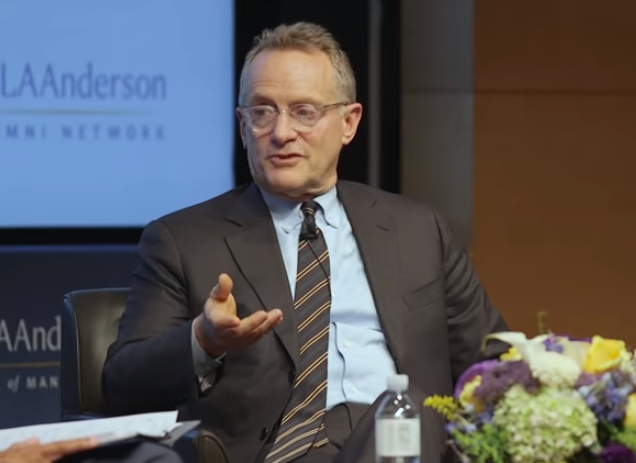Howard Marks, billionaire investor and co-chair of Oaktree Capital Management, thinks the psychology of the investor is shifting and it shows in the market’s two consecutive days of massive sell-offs to start this week.
“The investor … should ask himself, ‘Can I strap myself in and stick around for ten years regardless of what happens tomorrow, over the next month, over the next year?'”
Marks, appearing on CNBC’s “Halftime Report,” said these drops don’t really matter in the long run.
“I want to convince people that these are not the things that matter,” Marks argued. “What it’s going to do tomorrow isn’t what’s going to matter.”
He said this is the difference between an “investor” and a “trader,” referencing the fact that being in the stock market for the next 10 years will provide better returns than the current yield of 1.35% of a 10-year Treasury bond.
“Something would have to be very, very wrong for that not to be true. But the key phrase is ‘for the next 10 years,'” Marks said. “The investor … should ask himself, ‘Can I strap myself in and stick around for 10 years regardless of what happens tomorrow, over the next month, over the next year?’
“That’s called being a investor, and not what I would call a trader.”
And that could be why markets are reacting in such extreme ways lately. During the interview Monday, which was the first of two massive sell-off days for all three major U.S. indexes, Marks alluded to “market-wide reactions” where investors and traders are “not discriminating.”
“When things are placid, people make distinctions,” Marks added. “When there’s panic, they take them out and shoot them all.”
Those extreme reactions seem to apply to the economy as well.
“A week or two ago, people thought it was flawless. And now today they think it’s hopeless,” Marks said.
Markets Monday and Tuesday were largely reacting to news that the coronavirus outbreak had not been effectively contained to China as more cases popped up in Italy, the Middle East and South Korea. Brazil confirmed its first case of the virus, also known as COVID-19, Wednesday, which means it has spread to every continent except Antarctica.
The virus now has more than 79,000 confirmed cases around the world, and investors wonder what effect that could have on the global economy.
Marks isn’t sure what the virus’ impact could be, and the markets are in a perplexing spot right now.
“What I’ve been saying for months is that I’m afraid to be in the market today. I’m also afraid to be out,” Marks said.
Finding deals in stocks has become hard, Marks argues. His firm manages around $125 billion in assets, but most of those are in the credit market.
“There are no screaming bargains today. It’s all a matter of finding the examples within each asset class that are a little more attractive than the others,” Marks said.
The S&P 500 lost more than 3% both Monday and Tuesday, which was the first back-to-back losses of 3% or more for the index since August 2015. Indices across the board were regaining some of those losses Wednesday morning, with all three major U.S. indices rising at least 0.4% by 12:30 p.m. EST.




